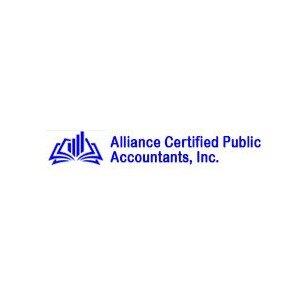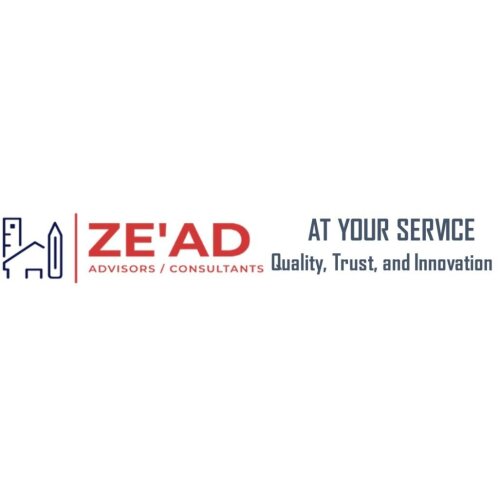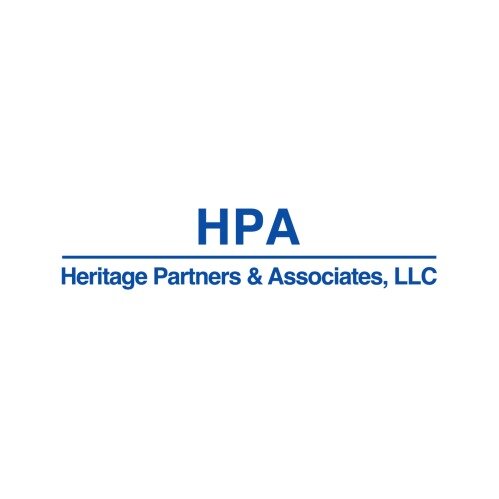Best Tax Lawyers in Monrovia
Share your needs with us, get contacted by law firms.
Free. Takes 2 min.
List of the best lawyers in Monrovia, Liberia

Alliance Certified Public Accountants, Inc. (Alliance CPAs, Inc.)
15 minutes Free ConsultationAbout Tax Law in Monrovia, Liberia
Tax law in Monrovia, Liberia, is a complex set of rules and regulations administered by the Liberia Revenue Authority (LRA). These laws govern how individuals and businesses are taxed in the country. The Liberian tax system is primarily comprised of income tax, goods and services tax (GST), property tax, and excise duties. The overarching goal of these taxes is to contribute to the national revenue, which supports public services and infrastructure development. The LRA is responsible for assessing and collecting taxes, enforcing tax compliance, and implementing tax policy in Liberia.
Why You May Need a Lawyer
There are several situations where seeking legal assistance in tax matters can be beneficial:
- Tax Disputes: Individuals or businesses facing disputes with the LRA regarding tax assessments or liability may need legal representation to resolve these issues.
- Complex Tax Filings: Businesses and high-income individuals often have complex financial situations that require expert tax advice to ensure compliance and optimize tax obligations.
- Tax Planning: A tax lawyer can provide strategic advice on tax planning to minimize future tax liabilities, especially for businesses planning significant investments or transactions.
- Compliance Issues: If facing penalties or an audit, legal assistance is crucial to navigate the compliance requirements and mitigate risks.
- Setting Up Businesses: New businesses may require guidance on the tax implications of their chosen legal structure (e.g., corporation, partnership) to make informed decisions.
Local Laws Overview
Key aspects of local tax laws in Monrovia include:
- Income Tax: Both individuals and businesses are subject to income tax. For individuals, rates increase progressively with income levels, while corporate tax rates depend on the type of business and revenue thresholds.
- Goods and Services Tax (GST): A value-added tax similar to VAT, imposed on the sale of goods and services. The standard rate applies, though some exemptions exist.
- Withholding Tax: Businesses must withhold tax on certain payments, such as dividends, interest, and royalties paid to non-residents.
- Property Tax: Imposed on real estate owners based on the value of their property, contributing to local municipal revenue.
- Excise Duties: Charged on specific goods, such as alcohol and tobacco, to discourage consumption and raise revenue.
Frequently Asked Questions
What is the deadline for filing income tax returns in Liberia?
The deadline for filing income tax returns in Liberia is typically March 31st for individual taxpayers and June 30th for corporate entities.
How can I register for a Tax Identification Number (TIN) in Liberia?
To register for a TIN, individuals and businesses must submit a completed application form to the LRA, along with required identification documentation.
What penalties exist for late tax filings or non-compliance?
Penalties for late filing may include fines and interest on unpaid taxes. Non-compliance can lead to audits, additional assessments, and potential legal action.
Are there any tax incentives or exemptions available in Liberia?
Yes, Liberia offers certain tax incentives for investments in key sectors, such as agriculture and renewable energy, to promote economic development.
What documentation is required when filing taxes in Liberia?
Taxpayers should provide proof of income, copies of financial statements (for businesses), and documentation of any deductions or credits claimed.
How are import taxes determined in Liberia?
Import taxes in Liberia, including customs duties and GST, are determined based on the value of the goods, their classification, and applicable duty rates.
Can expatriates working in Liberia be subject to Liberian taxes?
Yes, expatriates residing and working in Liberia are generally subject to the same tax laws as residents, based on their earnings within the country.
What is the role of a tax lawyer in handling tax audits?
A tax lawyer can help manage communications with tax authorities, prepare necessary documents, and represent the taxpayer's interests during an audit.
Are charitable contributions deductible under Liberian tax law?
Certain charitable contributions may be deductible if they meet specific criteria set by the LRA and are made to approved organizations.
How often is the Goods and Services Tax (GST) reported and paid?
GST is typically reported and paid monthly or quarterly, depending on the size and nature of the business.
Additional Resources
For additional assistance and information on tax matters in Liberia, consider consulting the following resources:
- Liberia Revenue Authority (LRA): The main governing body for tax administration, offering guidelines and services for taxpayers.
- Chamber of Commerce: Provides support for businesses regarding compliance and tax regulations.
- Professional Tax Consultants: Licensed professionals who offer advice and services regarding taxation.
Next Steps
If you require legal assistance with tax issues in Monrovia, Liberia, it is advisable to:
- Consult with a licensed tax attorney who specializes in Liberian tax law.
- Gather all relevant financial documents and records to provide to your legal advisor.
- Consider attending informational sessions or workshops conducted by local legal and business organizations for additional insights.
- Stay updated on current tax laws and compliance requirements by regularly reviewing official communications from the LRA.
Engaging with a qualified professional can provide peace of mind and ensure that your tax obligations are managed effectively and in compliance with local laws.
Lawzana helps you find the best lawyers and law firms in Monrovia through a curated and pre-screened list of qualified legal professionals. Our platform offers rankings and detailed profiles of attorneys and law firms, allowing you to compare based on practice areas, including Tax, experience, and client feedback.
Each profile includes a description of the firm's areas of practice, client reviews, team members and partners, year of establishment, spoken languages, office locations, contact information, social media presence, and any published articles or resources. Most firms on our platform speak English and are experienced in both local and international legal matters.
Get a quote from top-rated law firms in Monrovia, Liberia — quickly, securely, and without unnecessary hassle.
Disclaimer:
The information provided on this page is for general informational purposes only and does not constitute legal advice. While we strive to ensure the accuracy and relevance of the content, legal information may change over time, and interpretations of the law can vary. You should always consult with a qualified legal professional for advice specific to your situation.
We disclaim all liability for actions taken or not taken based on the content of this page. If you believe any information is incorrect or outdated, please contact us, and we will review and update it where appropriate.










